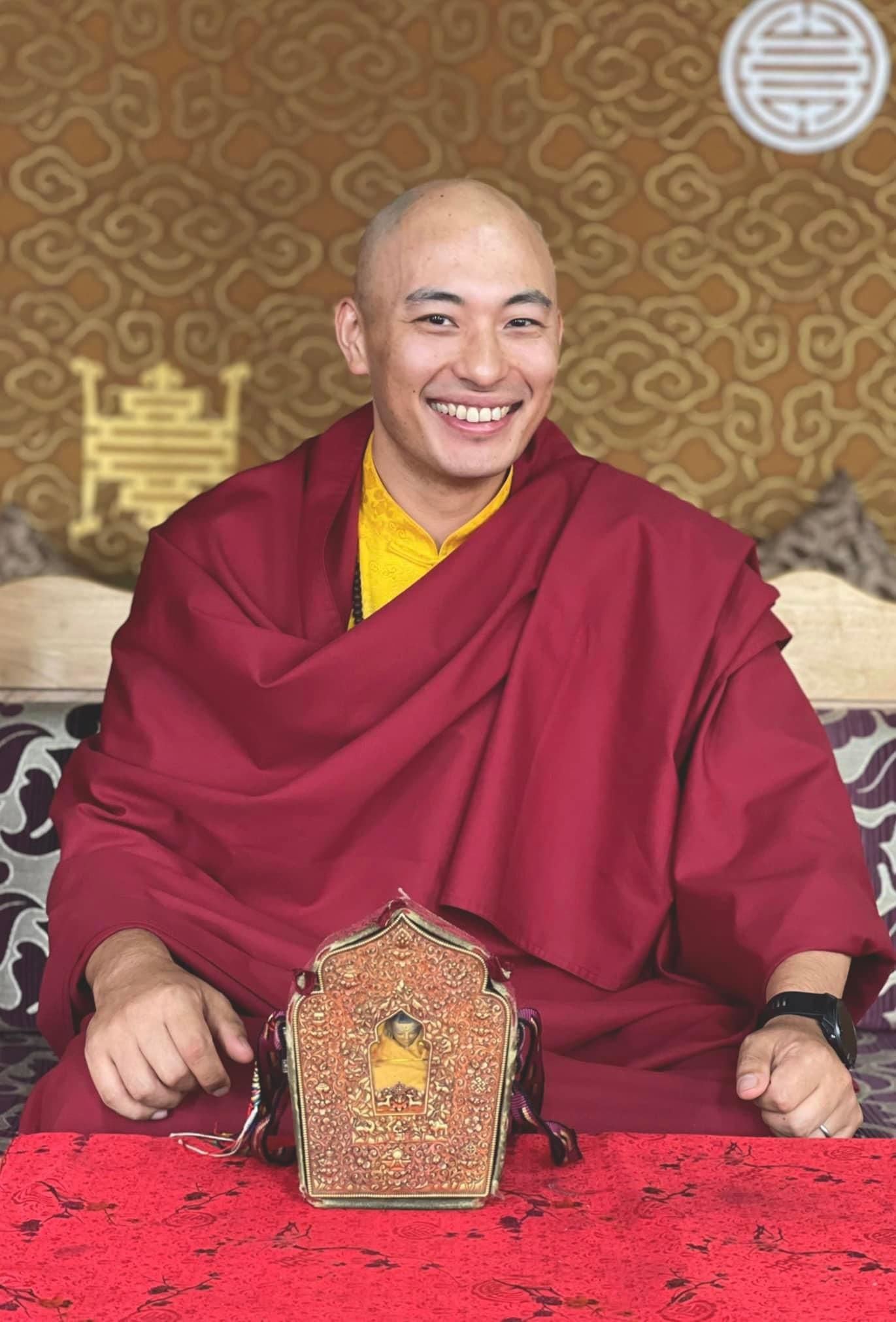Kyabje Kalu Rinpoche’s Inspiring Words to the Sukhasiddhi Foundation Sangha
The Sukhasiddhi Foundation sangha had the great honor and blessing of steeping in two weekends of teachings from Kyabje Kalu Rinpoche this past summer. He generously offered teachings by Sukhasiddhi, Niguma, and Metripa as well as offering a powerful Amitabha empowerment. While Rinpoche was not able to give these teachings in person, he did so on Zoom from his center in Vancouver. The transmission was palpable, and this was a helpful reminder of the illusory nature of space and time.
It was particularly meaningful to receive the teachings of Sukhasiddhi and Niguma, the two wisdom dakinis who are the source of the Shangpa Kagyu teachings, from Kalu Rinpoche, who is the head of the Shangpa Kagyu lineage. Rinpoche spoke eloquently of his personal connection to the Shangpa lineage and of his utter devotion and commitment to ensure to that these teachings continuously flow and flourish. His words of devotion were like nectar. It was deeply moving and inspiring.
Rinpoche’s wonderfully genuine way of explaining the spiritual path makes the teachings practical and immediately accessible. The common thread that is weaved through all his teachings is encouragement to allow the practice to arise naturally from within us, grounded in our own experience. This allows for the motivation to practice to arise effortlessly, and for practice and its development to be organic and sincere rather than fabricated.
In offering a teaching from Metripa, he expounded on the topics of motivation, renunciation, discipline, and compassion. In alignment with the fourth of the four thoughts that turn the mind to dharma, he encouraged us to reflect on our experience of suffering and recognize that the cause of suffering is grasping to the idea of self as being independently existent. Understanding that it is this self-clinging is the cause of our suffering then naturally inspires and motivates us to let go of or renounce discursive thought, attachment to self, and maintain a joyful discipline in our practice:
Discipline in yourself is very much needed. Discipline doesn't mean that you have to appear to be so important. It doesn't mean that you have to appear to be so good, so pure. Discipline simply means understanding the meaning of renunciation and understanding the purpose of your spiritual path. If you have this core principle, then the idea of discipline will arise by itself.
Discipline is not a law. It's not something based in fear. The whole idea of discipline, from a spiritual perspective, is about simply reflecting on the definition of renunciation and then reflecting on your intention and purpose of going towards your spiritual goal. This is the core idea of all discipline. When you have this core foundation, then you naturally have right speech, right mental attitude, and the right action that will benefit all sentient beings. When you look at the Buddha and other Buddhist masters, you see they enjoy their decision to engage in their practice with discipline. It doesn’t make sense to me that we should be unhappy in our discipline.
I reflect again and again on the meaning of discipline and see that its meaning comes down to the capacity of our renunciation. The greater the renunciation, the greater the discipline. The lesser the renunciation, the lesser the discipline.
The definition of renunciation comes down to how much you understand the meaning of suffering, the cause of suffering, and the core of suffering. Once you understand that clinging to the false idea of self is the cause of suffering and the cycle of suffering, then as a natural reaction, you have a sense of wanting to let go of that cause. There is a sense of detachment that naturally occurs. Letting go of or renouncing that which is the cause of suffering is a natural response. It is not particularly religious.
Rinpoche spoke about the connection between recognizing our own suffering and its cause and developing compassion for others:
The true definition of compassion is understanding the very existence of suffering and the cycle of suffering that arises as a result of clinging to the false idea of the existence of self. Once we understand how self-clinging is the source of such suffering for ourselves, compassion for all sentient beings arises naturally when we recognize that they are suffering because of their clinging to the false identity of self. Compassion doesn’t mean that we feel bad for them or pity them. Compassion for self and others arises because we understand the experience of suffering and the cycle of suffering.
Just being aware that there is self-clinging does not make it go away. It is continuously a part of our experience. When our practice develops, our subtle awareness increases, and we can become more aware of the subtle movement of the mind. Then, we can begin to loosen self-clinging on that level. The three necessities needed for a practice to develop and for qualities to arise are awareness, sincerity, and willingness to acknowledge distractions. Letting go of fixation on self is the source of the quality of generosity. Ultimately, nothing truly exists. Our body is like a rainbow. Remind yourself that everything is like an illusion, a rainbow.
Discipline should be free, beautiful, and this is the result of understanding renunciation. It does not need to be rigid. When we create a gap within discursive mind and attachment to self, then practice becomes beautiful.
~ Kyabje Kalu Rinpoche

